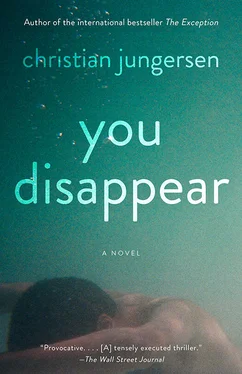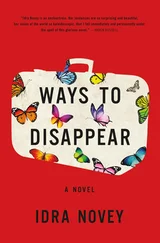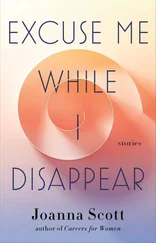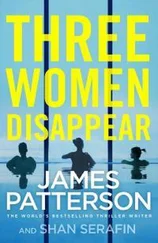After another two wheelchairs have gone in, Anton and I follow his wife into the church, and it takes my breath away. It always does: the vaulted ceilings, the carved woodwork, the chalk paintings. I can’t walk into a medieval Danish church without feeling Christianity calling to me. And I’ve been that way for as long as I remember.
For centuries, people have prayed and grieved here, suffered and celebrated, and I still can feel traces of their presence. In the churches, they abide with us still: the wives of farmers who keeled over in the field, the wives of fishermen who drowned in the storm. All the children and parents of the centuries’ departed. They begged and wept before God because their own lives were over now too and maybe they’d have to enter the poorhouse, maybe they’d starve, maybe they’d have to wed some rich old man.
And the joys, the centuries’ joys: the christenings, the weddings, the Sundays in August when the harvest was abundant and everyone could feel safe for the winter.
Poverty in Europe till a hundred years ago, less than three of my lifetimes ago — the tattered clothes and the teeth yanked out with no anesthetic, the diseases you got when you shared a straw pallet with rats. Back when there were no toilets, when backbreaking labor from dawn to dusk gave even young people the pain of arthritis all night long. The way life was until just a few years ago; I still feel it, here in the dark.
Christ gazes down from the cross, and Solveig’s nephew switches his iPhone to mute. For centuries, spaces like this framed Europe’s dreams and hopes and spiritual life, and now it’s all kaput. Regardless of how the chalk paintings and ancestors call to me, I know this funeral is mere show, like when Native Americans perform an ancient rain dance for tourists but no longer believe in a rain god. I’m looking around at something that’s disappeared because the fundamental delusion of God and Paradise can no longer convince us.
Is it wrong for me to be here and act as if I believe in God, now that I’ve converted to atheism? After all, that’s idolatry. Is it wrong for me to enjoy it, to let myself steep in Christendom’s seductive lies for the interval of an hour? I don’t know.
Anton sits beside his wife, and I sit next to him. Seven years ago, she was diagnosed with a tumor and required surgery in her left temporal region, which the doctors said lay on the edge of her brain’s language areas. The evening before the operation, they both knew she might never be able to speak again. In support group, he told us how she held him in their bed, looked him deep in the eye, and said, “After tomorrow, I might never be able to tell you I love you again.” They both wept. “You’re the only man who’s ever meant anything to me,” she said. “If I can never tell you that again, will you always remember that I told you tonight?”
“Yes,” he said.
And only in the group did he say that as he held her and wept, even as he knew that he’d remain with her till one of them died, he couldn’t avoid a poison droplet of suspicion that she said what she did because she might become completely dependent on him the next afternoon, and she wanted to chain him to her.
I’m turning around a little too often, looking back toward the door. I’m not sure why I’m doing this, but then Bernard and Lærke enter, and I remember.
I can’t imagine that anyone notices anything — we exchange a brief innocent glance as he walks past, and we nod our little funeral nod. Others have lowered their eyes and are leafing through their hymnals to find the right page, while I shift about restlessly on the hard wooden pew.
Bernard and Lærke sit down several rows in front of us. His short grey-white hair pokes up above the other people sitting around him, and I also catch a glimpse of Lærke’s impressive locks. I know how his hair feels against my palms, against my cheeks, my belly and breasts, my crotch. I know the feel of his chest hair, the hair on the top of his hands, the hair on his legs.
After we returned from Sweden, Bernard didn’t call me, and I felt I couldn’t let myself keep contacting him. I had to let him dissolve our relationship, since he was obviously fighting so hard to be faithful. Since he thought it’d be best for Lærke.
But then I had that experience by Lake Farum. I have no clue what happened, but the likeliest explanation has got to be an epileptic seizure in my temporal lobes. It’s been well documented that temporal lobe epilepsy can create the sensation of booming voices, blinding light, and paralysis.
Naturally, I’ve spoken to my doctor about it. But several months ago, I insisted on neurological scans for both Niklas and myself, because our personalities had changed more than I thought was reasonable to expect from a crisis. Nothing showed up on the scans, however, and since then my doctor’s refused to spend any more tax money on our brains.
If you approach it with an open mind, there is also of course the possibility that I did experience a genuine revelation — that Peter Mansfield really did reveal himself to me and initiate me into the pursuit of beauty and truth in the true atheistic life.
And the one explanation need not preclude the other. Wouldn’t it be consistent with the spirit of atheism if such a revelation respected the laws of nature? If it revealed itself to initiates through something so scientifically ordinary as an epileptic fit of the temporal lobes? Researchers have posited that temporal lobe epilepsy is the source of many well-known revelations throughout history.
Regardless of what it was, I now knew that Bernard and I were predestined to meet each other and fall in love. There was nothing we could do about it.
So I called him, and I was such a compelling evangelist on the phone that we met up that very evening, and since then we’ve seen each other almost every single day.
• • •
One of the other users at braindamage.com posted a comment saying that women have a harder time than men when their spouses suffer frontal lobe injuries. She said she’d even met men who were thriving with wives who had such damage. True, a brain-damaged wife may not be able to read her husband’s feelings anymore, but she’s finally stopped nagging him when he’s messy, and she’s completely forgotten that she’s bitter about something he did in the distant past, or that she can’t stand being in a room with his sister and mother. And on some things — especially in bed — he finds she’s less inhibited and easier to get along with.
The women lose so much more. In particular, they have to live with loneliness; it’s draining when their husbands can no longer share their feelings, when they become even less emotionally nuanced than they already were.
Nevertheless, it’s usually a woman who will stay with a sick spouse and spend the rest of her life as a round-the-clock nurse, while a man with a sick wife will find a healthy woman to run off with.
There’s a wake at Solveig’s after the funeral. Lots of people come, and in the throng in front of the hors d’oeuvres, I see Lærke hanging on Bernard. I position myself on his other side. Does she know what a unique man she has? Does she realize?
Yes, you only have to catch a glimpse of them together to see that she thinks he’s the most wonderful man in the world, thinks he’s lovelier beyond compare; that in fact he’s the only wonderful man there is. But that’s how I feel too. He really is the only one.
Lærke tugs on his sleeve. “There are those ones with lox, and those ones with something white, and then there are those with that … it’s pâté, right? Is it pâté, Bernard?”
“Yes, it’s pâté. It looks delicious, don’t you think?”
Читать дальше



![Ally Carter - [Gallagher Girls 01] I'd Tell You I Love You But Then I'd Have to Kill You](/books/262179/ally-carter-gallagher-girls-01-i-d-tell-you-i-lo-thumb.webp)








